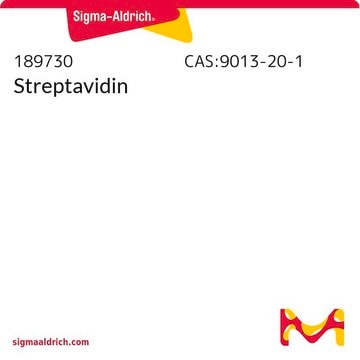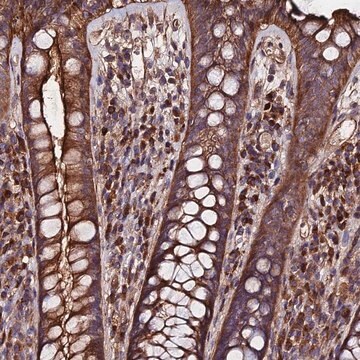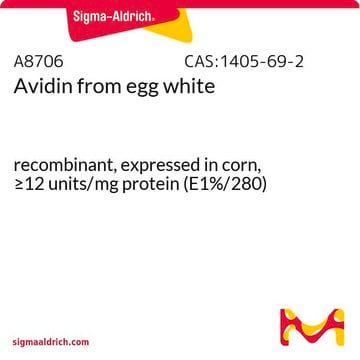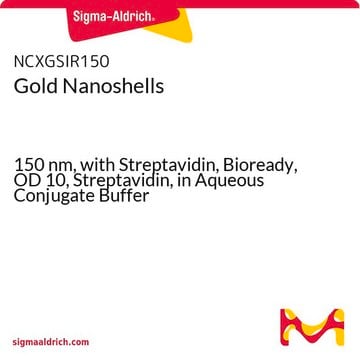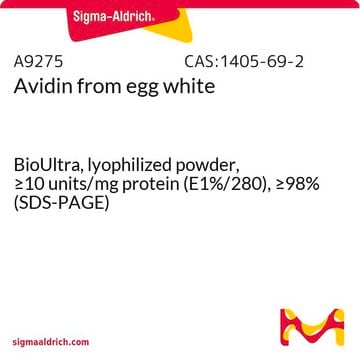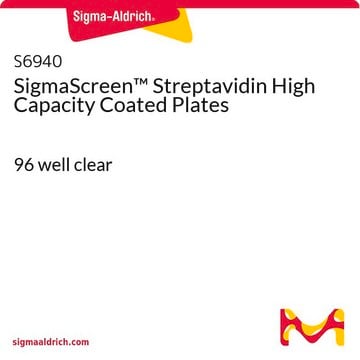RSTREP-RO
Roche
Streptavidin, recombinant
liquid, ≥17 units/mg protein, pH range 5.0-9.0
Synonyme(s) :
streptavidin
About This Item
Produits recommandés
Source biologique
Streptomyces sp. ( Streptomyces avidinii)
Niveau de qualité
Produit recombinant
expressed in E. coli
Forme
liquid
Activité spécifique
≥17 units/mg protein
Poids mol.
~52 kDa
Conditionnement
pkg of 1 mg (11721666001)
pkg of 5 mg (11721674001)
Fabricant/nom de marque
Roche
Concentration
70-90%
Technique(s)
protein array: suitable
protein purification: suitable
Impuretés
6-7% water
Plage de pH
5.0-9.0
pl
7.4-7.7 (two main bands)
Solubilité
water: 10 mg/L (mA405=100)
Adéquation
suitable for immunological tests
Numéro d'accès UniProt
Conditions d'expédition
cooler
Température de stockage
-10 to -25°C
Description générale
Application
Séquence
Each subunit has six tyrosine residues.The protein is free of carbohydrate.
Définition de l'unité
Forme physique
Protein: 0.7 ± 0.1mg protein lyophilizate (A282 = 3.1)
KD: 10-15M
Autres remarques
Code de la classe de stockage
11 - Combustible Solids
Classe de danger pour l'eau (WGK)
WGK 1
Point d'éclair (°F)
does not flash
Point d'éclair (°C)
does not flash
Certificats d'analyse (COA)
Recherchez un Certificats d'analyse (COA) en saisissant le numéro de lot du produit. Les numéros de lot figurent sur l'étiquette du produit après les mots "Lot" ou "Batch".
Déjà en possession de ce produit ?
Retrouvez la documentation relative aux produits que vous avez récemment achetés dans la Bibliothèque de documents.
Les clients ont également consulté
Notre équipe de scientifiques dispose d'une expérience dans tous les secteurs de la recherche, notamment en sciences de la vie, science des matériaux, synthèse chimique, chromatographie, analyse et dans de nombreux autres domaines..
Contacter notre Service technique